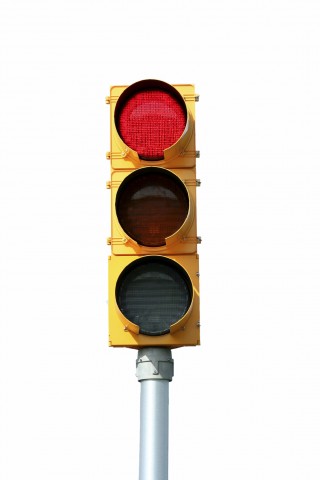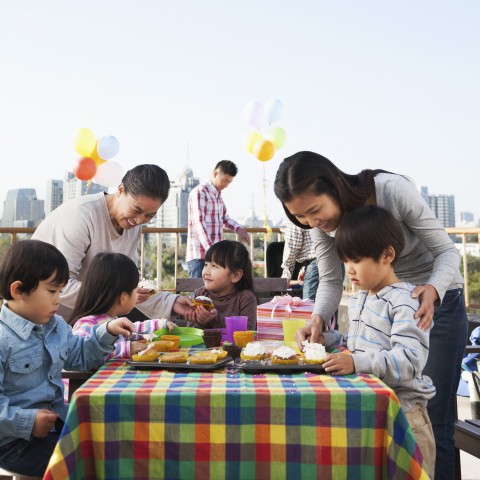
How many actions do you think you do in a day? That number reflects the importance of knowing a language’s verbs for effective communication.
In this article, you’ll learn 100 Thai verbs that every beginner needs to know. Further, we’ll teach you a little bit about the grammar and usage of these verbs through examples. We believe you’ll be very happy to hear that this is a simple and easy topic!
Is there subject-verb agreement in Thai? What about Thai verb conjugation? The answer to both is a resounding “No!” Thai people use the same form of verbs regardless of the subject.
Are there Thai verb tenses for present, future, and past? The answer is no. Thai people use the same verb forms regardless of the time.
So you can see now that this lesson will mainly focus on vocabulary. Basically all you need to worry about is memorizing our Thai verbs list!
We’ll start this lesson with basic information about Thai verbs, followed by our list of the most useful Thai verbs for beginners. Then, you’ll also get to learn about auxiliary verbs in Thai, and other verbs that are important to know for easy communication.
 Table of Contents
Table of Contents
- Basic Information About Thai Verbs
- Intransitive Verbs
- Transitive Verbs
- The Verb “To Be”
- Helping Verbs
- Conclusion
1. Basic Information About Thai Verbs

คำกริยา (kham-gà-rí-yaa) is “verb” in Thai. Before we present to you our list of Thai verbs, we thought it would be nice to give you an explanation about verb types in the Thai language, as well as how to use verbs in a sentence.
1- Verb Types
There are four types of verbs in the Thai language, listed below. A detailed explanation of each type will be explained in the following sections.
- อกรรมกริยา (à-gam-gà-rí-yaa) is “intransitive verbs” in Thai.
- สกรรมกริยา (sà-gam-gà-rí-yaa) is “transitive verbs” in Thai.
- วิกตรรถกริยา (ví-gà-dtàt-thà-gà-rí-yaa) is “verb to be” in Thai.
- กริยานุเคราะห์ (gà-rí-yaa-nú-khráw) is “helping verb” or “auxiliary verb” in Thai.
2- Thai Verbs in a Sentence
As mentioned above, there’s no change in Thai verb form, so you don’t have to learn about Thai verb conjugation. Still, we’ll give you a basic idea of how verbs are used in Thai sentence structure.
- Affirmative sentence: subject + verb + object (if any)
- Negative sentence: subject + ไม่ (mâi) which is “no” in Thai + verb + object (if any)
- Question: Add a question word to the sentence; no change in verb.
In the following sections, we present to you the most essential Thai verbs with examples.
2. Intransitive Verbs

อกรรมกริยา (à-gam-gà-rí-yaa) is “intransitive verbs” in Thai. These are verbs that are able to make a sentence complete without the use of an object. Below is a list of Thai intransitive verbs that are often used in daily life.
1- Walk
เดิน (dooen)
Example:
ยายเดินไปตลาดทุกเช้า
yaai-dooen-bpai-dtà-làat-thúk-cháo
“My grandmother walks to the market every morning.”
2- Run
วิ่ง (wîng)
Example:
เธอวิ่งเพื่อลดความอ้วนทุกวัน
thooe-wîng-phûuea-lót-khwaam-ûuan-thúk-wan
“She runs everyday to lose weight.”
3- Stand
ยืน (yuuen)
Example:
ฉันยืนรอเธอนานมาก
chǎn-yuuen-raaw-thooe-naan-mâak
“I have been standing here, waiting for you for ages.”
4- Sit
นั่ง (nâng)
Example:
ตาอายุมากแล้ว พอนั่งนาน ๆ ก็ปวดหลัง
dtaa-aa-yú-mâak-láaew phaaw-nâng-naan-naan-gâaw-bpùuat-lǎng
“My grandpa is quite old. If he sits for a long time, his back hurts.”
5- Jump
กระโดด (gra-doot)
Example:
พี่ชายฉันขายาว เลยกระโดดได้ไกล
phîi-chaai-chǎn-khǎa-yaao looei-grà-dòot-dâi-glai
“My older brother can jump far because of his long legs.”
6- Fly
บิน (bin)
Example:
ทำไมนกตัวนั้นบินไม่ได้
tham-mai-nók-dtuua-nán-bin-mâi-dâi
“Why can’t that bird fly?”
7- Kneel
คุกเข่า (khúk-khào)
Example:
เขาคุกเข่าขอแฟนแต่งงาน
Khǎo-khúk-khào-khǎaw-faaen-dtàaeng-ngaan
“He kneeled, then asked his girlfriend to marry him.”
8- Wake up
ตื่นนอน (dtùuen-naawn); ตื่น (dtùuen)
Example 1:
วันนี้เธอตื่นนอนกี่โมง
wan-níi-thooe-dtùuen-naawn-gìi-moong
“What time did you wake up today?”
Example 2:
วันนี้ฉันตื่นสาย
wan-níi-chǎn-dtùuen-sǎai
“Today, I woke up late.”
Additional Note: ตื่นนอน (dtùuen-naawn) and ตื่น (dtùuen) have exactly the same meaning. However, ตื่นนอน (dtùuen-naawn) is a bit more formal than ตื่น (dtùuen).
9- Sleep
นอน (naawn)
Example:
เมื่อคืนแม่นอนไม่หลับ
mûuea-khuuen-mâae-naawn-mâi-làp
“Mom couldn’t sleep last night.”
10- Nap
งีบ (ngîip)
Example:
ถ้าง่วง ก็งีบสัก 15 นาทีสิ
thâa-ngûuang gâaw-ngîip-sák-sìp-hâa-naa-thii-sì
“If you are sleepy, take a nap for 15 minutes.”
11- Yawn
หาว (hǎao)
Example:
ดูท่าทางน้องจะง่วงแล้วนะ หาวไม่หยุดเลย
duu-thâa-thaang-náawng-jà-ngûuang-láaew-ná hǎao-mâi-yhùt-looei
“Looks like she is sleepy; she has been yawning many times for a while now.”
12- Snore
กรน (gron)
Example:
พ่อนอนกรนเสียงดัง
phâaw-naawn-gron-sǐiang-dang
“Dad snores loudly.”
13- Sleepwalking
ละเมอ (lá-mooe)
Example:
หลานชายของฉันนอนละเมอบ่อย ๆ
lǎan-chaai-khǎawng-chǎn-naawn-lá-mooe-bàauy-bàauy
“My nephew sleepwalks often.”
14- Dream
ฝัน (fǎn)
Example:
เมื่อคืนฉันฝันดีมาก
mûuea-khuuen-chǎn-fǎn-dii-mâak
“I dreamed very well (had a good dream) last night.”
15- Speak
พูด (phûut)
Example:
ช่วยพูดเสียงดัง ๆ หน่อย ฉันไม่ได้ยิน
chûuai-phûut-sǐiang-dang-dang-nàauy chǎn-mâi-dâi-yin
“Please speak loudly, I can’t hear you.”
16- Smile
ยิ้ม (yím)
Example:
พอยิ้มแล้ว เธอดูน่ารักมาก
phaaw-yím-láaew thooe-duu-nâa-rák-mâak
“You look very pretty when you smile.”

17- Laugh
หัวเราะ (hǔa-ráw)
Example:
หัวเราะอะไรกันอยู่
hǔa-ráw-à-rai-gan-yhùu
“What are you laughing at?”
18- Cry
ร้องไห้ (ráawng-hâi)
Example:
เด็กคนนั้นร้องไห้เสียงดังเพราะตุ๊กตาหาย
dèk-khon-nán-ráawng-hâi-sǐiang-dang-phráw-dtúk-gà-dtaa-hǎai
“That child cried loudly because she lost her doll.”
19- Hiccup
สะอึก (sà-ùek)
Example:
ต้องทำยังไงถึงจะหยุดสะอึก
dtâawng-tham-yang-ngai-thǔng-jà-yhùt-sà-ùek
“What should I do to stop hiccuping?”
20- Sneeze
จาม (jaam)
Example:
เธอจามไม่หยุดเลย ไม่สบายเหรอ
thooe-jaam-mâi-yhùt-looei mâi-sà-baai-rǒoe
“You have been sneezing, are you sick?”
21- Lie
โกหก (goo-hok)
Example:
อย่าโกหกฉันนะ
yhàa-goo-hòk-chǎn-ná
“Don’t lie to me.”
22- Work
ทำงาน (tham-ngaan)
Example:
พนักงานใหม่คนนั้นทำงานดีมาก
phá-nák-ngaan-mài-khon-nán-tham-ngaan-dii-mâak
“That new employee works very well.”
23- Take a bath
อาบน้ำ (àap-nám)
Example:
พออาบน้ำแล้วฉันก็รู้สึกสดชื่น
phaaw-àap-nám-láaew-chǎn-gâaw-rúu-sùek-sòt-chûuen
“I feel fresh after taking a bath.”
24- Shampoo
สระผม (sà-phǒm)
Example:
พ่อสระผมทุกวัน
phâaw-sà-phǒm-thúk-wan
“Dad shampoos his hair everyday.”
25- Fall
ตก (dtòk)
Example:
แมวตกจากต้นไม้
maaeo-dtòk-jàak-dtôn-mái
“The cat fell from the tree.”
26- Float
ลอย (laauy)
Example:
ทำไมเรือถึงลอยอยู่กลางน้ำได้
tham-mai-ruuea-thǔeng-laauy-yhùu-glaang-nám-dâi
“Why do ships float on the water?”
27- Swim
ว่ายน้ำ (wâai-nám)
Example:
เด็ก ๆ ชอบว่ายน้ำ
dèk-dèk-châawp-wâai-nám
“Children like to swim.”

28- Go
ไป (bpai)
Example:
ลุงออกไปไหนเมื่อเช้านี้
lung-àawk-bpai-nǎi-mûuea-cháo-níi
“Where did Uncle go this morning?”
29- Come
มา (maa)
Example:
มานี่หน่อย ฉันอยากได้คนช่วย
maa-nîi-nàauy chǎn-yàak-dâi-khon-chûuai
“Come here, I need help.”
30- (Get) Sick
ป่วย (bpùuai)
Example:
อย่าตากฝน เดี๋ยวป่วย
yhàa-dtàak-fǒn dǐiao-bpùuai
“Don’t stay in the rain or you will get sick.”
31- Dance
เต้น (dtên)
Example:
นักร้องคนนั้นเต้นเก่งมาก
nák-ráawng-khon-nán-dtên-gèng-mâak
“That singer dances very well.”
32- Sing
ร้องเพลง (ráawng-pleeng)
Example:
แม่ร้องเพลงไปด้วย ขับรถไปด้วย
mâae-ráawng-pleeng-bpai-dûuai khàp-rót-bpai-dûuai
“Mom sings while driving.”
33- Pay respect
ไหว้ (wâai)
Example:
นักเรียนไหว้คุณครู
nák-riian-wâai-khun-khruu
“The student pays respect to the teacher.”
34- Born
เกิด (gooet)
Example:
เธอเกิดวันอังคาร
thooe-gòoet-wan-ang-khaan
“She was born on Tuesday.”
35- Die
ตาย (dtaai)
Example:
ตาของเขาตายเพราะอุบัติเหตุรถยนต์
dtaa-khǎawng-khǎo-dtaai-phráw-ù-bàt-thì-hèet-rót-yon
“His grandpa died because of a car accident.”
36- Swear
สาบาน (sǎa-baan)
Example:
เขาสาบานว่าจะไม่โกหกอีก
khǎo-sǎa-baan-wâa-jà-mâi-gaaw-hòk-ìik
“He swears to never lie again.”
37- Greet
ทักทาย (thák-thaai)
Example:
คนไทยทักทายกันโดยการกล่าวสวัสดี
khon-thai-thák-thaai-gan-dooi-gaan-glàao-sà-wàt-dii
“Thai people greet each other by saying ‘hello.’”
38- Understand
เข้าใจ (khâo-jai)
Example:
เธอเข้าใจที่ฉันพูดมั๊ย
thooe-khâo-jai-thîi-chǎn-phûut-mái
“Do you understand what I said?”
39- Breathe
หายใจ (hǎai-jai)
Example:
กบหายใจใต้น้ำได้มั๊ย
gòp-hǎai-jai-dtâi-nám-dâi-mái
“Can frogs breathe underwater?”
40- Regret
เสียใจ (sǐia-jai)
Example:
ฉันเสียใจที่ไม่ตั้งใจเรียนภาษาอังกฤษ
chǎn-sǐia-jai-thîi-mâi-dtâng-jai-riian-phaa-sǎa-ang-grìt
“I regret not paying attention in English class.”
41- Bark
เห่า (hào)
Example:
หมาเห่าเสียงดัง
mhǎa-hào-sǐiang-dang
“The dog barks loudly.”
42- Agree
เห็นด้วย (hěn-dûuai)
Example:
ฉันเห็นด้วยกับมติการประชุม
chǎn-hěn-dûuai-gàp-má-thì-gaan-bprà-chum
“I agree with the resolution.”
43- Exercise
ออกกำลังกาย (àawk-gam-lang-gaai)
Example:
ปู่ออกกำลังกายทุกวัน เลยสุขภาพดี
bpùu-àawk-gam-lang-gaai-thúk-wan looei-sùk-gà-phâap-dii
“My grandpa exercises everyday, so he is healthy.”
3. Transitive Verbs
สกรรมกริยา (sà-gam-gà-rí-yaa) is “transitive verbs” in Thai. These are verbs that can’t complete a sentence with their meaning alone; the sentence will require an object to be complete. Below is a list of Thai transitive verbs that are often used in everyday life.
44- Eat
กิน (gin); ทาน (thaan); รับประทาน (ráp-bprà-thaan)
Example 1:
ฉันชอบกินก๋วยเตี๋ยว
chǎn-châawp-gin-gǔuai-dtǐiao
“I like to eat noodles.”
Example 2:
เธอจะทานอะไร
thooe-jà-thaan-à-rai
“What do you want to eat?”
Example 3:
เมื่อวานนี้ คุณแม่รับประทานอาหารไทยตอนเย็น
mûuea-waan-níi khun-mâae-ráp-bprà-thaan-aa-hǎan-thai-dtaawn-yen
“Yesterday, my mother ate Thai food in the evening.”
Additional Note: These three words have exactly the same meaning. However, among these three words, รับประทาน (ráp-bprà-thaan) is the most formal one, followed by ทาน (thaan) and กิน (gin), respectively.
45- Drink
ดื่ม (dùuem)
Example:
ฉันชอบดื่มนมช็อคโกแลต
chǎn-châawp-dùuem-nom-cháawk-goo-láaet
“I like to drink chocolate milk.”
46- Boil
ต้ม (dtôm)
Example:
เธอกำลังต้มไข่
thooe-gam-lang-dtôm-khài
“She is boiling the egg.”
47- Fry
ทอด (thâawt)
Example:
เธอต้องรอให้น้ำมันร้อนก่อนทอดไก่
thooe-dtâawng-raaw-hâi-nám-man-ráawn-gàawn-thôot-gài
“You have to wait for the oil to be hot before frying chicken.”
48- Stir fry
ผัด (phàt)
Example:
ผัดผักอย่างไร
phàt-phàk-yàang-rai
“How do you stir fry vegetables?”

49- Heat up
อุ่น (ùn)
Example:
ช่วยอุ่นนมให้หน่อย
chûuai-ùn-nom-hâi-nàauy
“Could you please heat up the milk?”
50- Chop
สับ (sàp)
Example:
สับช็อคโกแลตให้เป็นชิ้นเล็ก ๆ
sàp-cháawk-goo-láaet-hâi-bpen-chín-lék-lék
“Chop the chocolate into small pieces.”
51- Slice
หั่น (hàn)
Example:
แม่หั่นหมูได้บางมาก
mâae-hàn-mǔu-dâi-baang-mâak
“Mom slices pork very thinly.”
52- Peel
ปอก (bpàawk)
Example:
ช่วยปอกเปลือกแอปเปิ้ลให้หน่อยได้มั๊ย
chûui-bpàawk-plùueak-áap-bpôoen-hâi-nàauy-dâi-mái
“Can you peel the apple for me?”
53- Wash (dishes)
ล้าง (láang)
Example:
วันนี้ใครจะล้างจาน
wan-níi-khrai-jà-láang-jaan
“Who will wash the dishes today?”
54- Wash (cloth)
ซัก (sák)
Example:
แม่ซักผ้าปูเตียงเมื่อวาน
mâae-sák-phâa-bpuu-dtiiang-mûuea-waan
“Mom washed the bed sheet yesterday.”
55- Hang
ตาก (dtáak)
Example:
พ่อกำลังตากผ้า
phâaw-gam-lang-dtàak-phâa
“Dad is hanging clothes to dry now.”
56- Iron
รีด (riit)
Example:
เธอรีดผ้าเก่งมั๊ย
thooe-rîit-phâa-gèng-mái
“Are you good at ironing?”
57- Look
ดู (duu)
Example:
ดูนี่สิ สวยจัง
duu-nîi-sì sǔuai-jang
“Look at this, so beautiful.”
58- Read
อ่าน (àan)
Example:
พ่ออ่านหนังสือเร็วมาก
phâaw-àan-nǎng-sǔue-reo-mâak
“Dad reads books very fast.”

59- Write
เขียน (khǐian)
Example:
ครูเขียนภาษาญี่ปุ่นเก่ง
khruu-khǐian-phaa-sǎa-yîi-bpùn-khèng
“My teacher is good at writing Japanese.”
60- Type
พิมพ์ (phim)
Example:
ใครเป็นคนพิมพ์รายงานนี้
khrai-bpen-khon-phim-raai-ngaan-níi
“Who typed this report?”
61- Listen
ฟัง (fang)
Example:
มุกดาชอบฟังเพลงแจ็ส
múk-daa-châawp-fang-pleeng-jáaet
“Mukda likes listening to jazz music.”
62- Hit
ตี (dtii)
Example:
ครูไม่ควรตีนักเรียน
khruu-mâi-khuuan-dtii-nák-riian
“Teachers shouldn’t hit students.”
63- Kick
เตะ (dtè)
Example:
เขาเตะลูกบอลแรงมาก
khǎo-dte-lûuk-baawn-raaeng-mâak
“He hit the ball very hard.”
64- Shave
โกน (goon)
Example:
พระต้องโกนผม
phrá-dtâawng-goon-phǒm
“Monks have to shave their head.”
65- Blow
เป่า (bpào)
Example:
ซุปร้อนมาก ต้องเป่าก่อนกิน
súp-ráawn-mâak dtâawng-bpào-gàawn-gin
“The soup is very hot, so blow it before eating.”
66- Do
ทำ (tham)
Example:
อย่าลืมทำการบ้าน
yhàa-luuem-tham-gaan-bâan
“Don’t forget to do homework.”
67- Wear (clothing)
ใส่ (sài)
Example:
พรุ่งนี้เธอจะใส่อะไร
phrûng-níi-jà-sài-à-rai
“What do you want to wear tomorrow?”
68- Take off
ถอด (thàawt)
Example:
อย่าลืมถอดผ้ากันเปื้อนออก
yhàa-luuem-thàawt-phâa-gan-bpûuean-àawk
“Don’t forget to take off your apron.”
69- Ride
ขี่ (khìi)
Example:
ฉันขี่จักรยานไม่เป็น
chǎn-khìi-jàk-gà-yaan-mâi-bpen
“I can’t ride bicycles.”
70- Learn
เรียน (riian)
Example:
พี่เรียนภาษาจีนทุกวันอาทิตย์
phîi-riian-phaa-sǎa-jiin-thúk-wan-aa-thít
“My older sister learns Chinese every Sunday.”
71- Play
เล่น (lên)
Example:
ไปเล่นเกมส์กันเถอะ
bpai-lên-geem-gan-thòe
“Let’s play games.”
72- Buy
ซื้อ (súue)
Example:
แม่ซื้อผักจากตลาดเยอะมาก
mâae-súue-phàk-jàak-dtà-làat-yóe-mâak
“Mom bought a lot of vegetables from the market.”
73- Sell
ขาย (khǎai)
Example:
ฉันเพิ่งขายรถคันเก่าทิ้งไป
chǎn-phôoeng-khǎai-rót-khan-gào-thíng-bpai
“I just sold my old car.”
74- Teach
สอน (sǎawn)
Example:
เธอสอนฉันทำบราวนี่ได้มั๊ย
thooe-sǎawn-chǎn-tham-braao-nîi-dâi-mái
“Can you teach me how to make brownies?”

75- Open
เปิด (bpòoet)
Example:
เปิดหน้าต่างให้หน่อย
bpòoet-nâa-dtàang-hâi-nàauy
“Please open the window.”
76- Close
ปิด (bpìt)
Example:
อย่าลืมปิดประตู
yhàa-luuem-bpìt-bprà-dtuu
“Don’t forget to close the door.”
77- Turn on
เปิด (bpòoet)
Example:
เงียบจังเลย เปิดทีวีหน่อยได้มั๊ย
ngîiap-jang-looei bpòot-thii-vii-nàauy-dâi-mái
“It is so quiet. Can you please turn on the TV?”
78- Turn off
ปิด (bpìt)
Example:
หนาวจัง ปิดแอร์ได้มั๊ย
nǎao-jang bpìt-aae-dâi-mái
“I’m cold. Can I turn off the air conditioner?”
79- Send
ส่ง (sòng)
Example:
ฉันจะส่งเอกสารให้ทางอีเมลนะ
chǎn-jà-sòng-èek-gà-sǎan-hâi-thaang-ii-meeo-ná
“I will send documents to you via email.”
80- Receive
รับ (ráp)
Example:
เธอได้รับอีเมลจากฉันรึเปล่า
thooe-dâi-ráp-ii-meeo-jàak-chǎn-rúe-bplào
“Did you receive my email?”
81- Produce
ผลิต (phà-lìt)
Example:
บริษัทนี้ผลิตรถยนต์
baaw-rí-sàt-níi-phà-lìt-rót-yon
“This company produces cars.”
82- Cut
ตัด (dtàt)
Example:
ตัดกระดาษให้หน่อยได้มั๊ย
dtàt-grà-dàat-hâi-nàauy-dâi-mái
“Can you cut that paper for me?”
83- Kill
ฆ่า (khâa)
Example:
ใครฆ่าเด็กคนนั้น
khrai-khâa-dèk-khon-nán
“Who killed that child?”
84- Build
สร้าง (sâang)
Example:
ใครสร้างบ้านหลังนี้
khrai-sâang-bâan-lǎang-níi
“Who built this house?”
85- Lean
พิง (phing)
Example:
กรุณาอย่ายืนพิงกระจก
gà-rú-naa-yhàa-yuuen-phing-grà-jòk
“Please do not lean on this glass.”
86- Fold
พับ (pháp)
Example:
พับเสื้อแบบนั้นยังไง
pháp-sûuea-bàaep-nán-yang-ngai
“How do you fold a shirt like that?”
87- Choose
เลือก (lûueak)
Example:
เธอจะเลือกอันไหน
thooe-jà-lûueak-an-nǎi
“Which one will you choose?”
4. The Verb “To Be”

วิกตรรถกริยา (ví-gà-dtàt-thà-gà-rí-yaa) is the verb “to be” in Thai. To be more specific, it refers to verbs that convey the concept that A is B. Below is a list of Thai “to be” verbs and other verbs that are considered วิกตรรถกริยา (ví-gà-dtàt-thà-gà-rí-yaa).
88-90 – To be
Similar to English, there are three verbs for “to be” in Thai: เป็น (bpen), อยู่ (yhùu), and คือ (kuue).
- เป็น (bpen) is used to explain the state or status of the subject, or what the subject is.
- อยู่ (yhùu) is used to tell the location of the subject.
- คือ (khuue) is used to explain the state or status of the subject. This is information that the listeners didn’t know before.
Example 1:
เธอเป็นหมอ
thooe-bpen-mhǎaw
“She is a doctor.”
Example 2:
ไมโลเป็นหมาพันธุ์ชิวาว่า
mai-loo-bpen-mhǎa-phan-shí-waa-wâa
“Milo is a Chihuahua dog.”

Example 3:
ของขวัญอยู่บนโต๊ะ
Khǎawng-khwǎn-yhùu-bon-dtóe
“The gift is on the table.”
Example 4:
ยายอยู่จังหวัดลพบุรี
yaai-yhùu-jang-wàt-lóp-bù-rii
“My grandma is at Lopburi.”
Example 5:
นี่คืออะไร
nîi-khuue-à-rai
“What is this?”
Example 6:
นี่คือเครื่องดื่มใหม่ของเรา
nîi-khuue-khrûueang-dùuem-mài-khǎawng-rao
“This is our new drink.”
91- Same as
เหมือน (mhǔuean)
Example:
สีเสื้อของแม่เหมือนสีเสื้อของฉัน
sǐi-sûuea-khǎawng-mâae-mhǔuean-sǐi-sûuea-khǎawng-chǎn
“The colors of my mother’s t-shirt are the same as mine.”
92- Similar to
คล้าย (kláai)
Example:
ล่อมีลักษณะคล้ายลา แต่ตัวเล็กกว่า
lâaw-mii-lák-sà-nà-khláai-laa dtàae-dtuua-lék-gwàa
“A mule is similar to a donkey, but is smaller.”
93- Equal to
เท่า (thâo)
Example:
หนูตัวนั้นตัวใหญ่มาก ขนาดเกือบเท่าลูกหมา
nǔu-dtuua-nán-dtuua-yhài-mâak khà-nàat-gùueap-thâo-lûuk-mhǎa
“That rat is so big, its size is almost equal to that of a puppy.”
94- As if
ราวกับ (raao-gàp)
Example:
เธอสวยราวกับนางฟ้า
thooe-sǔuay-raao-gàp-naang-fáa
“She is so beautiful, as if being an angel.”
5. Helping Verbs
กริยานุเคราะห์ (gà-rí-yaa-nú-kráw) is “helping verbs” or “auxiliary verbs” in Thai. Using these is very easy! To put a helping verb in a sentence, you don’t have to change the form of the verb or anything. You just put the helping verb in the right place and that’s it. Below is a list of Thai auxiliary verbs you should know.
95- Will
Thai word: จะ (jà)
How to use: จะ (jà) + verb for affirmative sentence; จะ (jà) + ไม่ (mâi) + verb for negative sentence
Example 1:
ฉันจะไปตลาดน้ำพรุ่งนี้
chǎn-jà-bpai-dtà-làat-nám-phrûng-níi
“I will go to the floating market tomorrow.”
Example 2:
ฉันจะไม่มาที่นี่อีก
chǎn-jà-mâi-maa-thîi-nîi-ìik
“I will not come back here again.”

96- Must
Thai word: ต้อง (dtâawng)
How to use: ต้อง (dtâawng) + verb for affirmative sentence; ต้อง (dtâawng) + ไม่ (mâi) + verb for negative sentence
Example 1:
เธอต้องทำงานให้เสร็จวันนี้
thooe-dtâawng-tham-ngaan-hâi-sèt-wan-níi
“You must finish work today.”
Example 2:
เด็ก ๆ ต้องไม่พูดคำหยาบ
dèk-dèk-dtâawng-mâi-phûut-kham-yhàap
“Children must not speak rude words.”
97- Should
Thai word: ควร (khuuan)
How to use: ควร (khuuan) + verb for affirmative sentence; ไม่ (mâi) + ควร (khuuan) + verb for negative sentence
Example 1:
เธอควรใส่กางเกงสีเข้ม ๆ พรุ่งนี้
thooe-khuuan-sài-gaang-geeng-sǐi-khêm-khêm-phrûng-níi
“You should wear dark-colored pants tomorrow.”
Example 2:
นักเรียนไม่ควรไปโรงเรียนสาย
nák-riian-mâi-khuan-bpai-roong-riian-sǎai
“Students shouldn’t go to school late.”
98- Used to
Thai word: เคย (khooei)
How to use: เคย (khooei) + verb for affirmative sentence; ไม่ (mâi) + เคย (khooei) + verb for negative sentence
Example 1:
ฉันเคยขึ้นรถเมล์ไปโรงเรียนด้วยตัวเองทุกวัน
chǎn-khooei-khûn-rót-mee-bpai-roong-riian-dûuai-dtua-eeng-thúk-wan
“I used to go to school by bus everyday by myself.”
Example 2:
เธอไม่เคยกินอาหารรสเผ็ด
thooe-mâi-khooei-gin-aa-hǎan-rót-phèt
“She isn’t used to spicy food.”
Additional Note: เคย (khooei) can also mean “marine shrimp” in Thai.

99- X-ing
Thai word: กำลัง (gam-lang)
How to use: กำลัง (gam-lang) + verb for affirmative sentence
Explanation: When you put กำลัง (gam-lang) in front of verbs, it’s like you’re changing the sentence from present simple tense to present continuous tense.
Example:
คุณครูกำลังตรวจการบ้านอยู่
khun-khruu-gam-lang-dtrùuat-gaan-bâan-yhùu
“The teacher is now grading homework.”
Additional Notes:
- Thai people don’t use this helping verb in negative sentences.
- กำลัง (gam-lang) can also mean “power” in Thai.
100- Passive form of a verb
Thai word: ถูก (thùuk)
How to use: ถูก (thùuk) + verb for affirmative sentence; ไม่ (mâi) + ถูก (thùuk) + verb for negative sentence
Example 1:
ลุงของฉันถูกหมากัดเมื่อวานนี้
lung-khǎawng-chǎn-thùuk-mhǎa-gàt-mûuea-waan-níi
“My uncle was bitten by a dog yesterday.”
Example 2:
น้องไม่ถูกแม่ทำโทษ แม้จะทำตัวไม่ดี
náawng-mâi-thùuk-mâae-tham-thôot máae-jà-tham-dtuua-mâi-dii
“My younger sister isn’t punished despite not behaving.”
Additional Note: In addition to being a helping verb, ถูก (thùuk) can also mean “correct” and “cheap” in Thai.
101- Already + verb
Thai word: แล้ว (láaeo)
How to use: verb + แล้ว (láaeo) for affirmative sentence
Example:
แม่ทำยำเสร็จแล้ว
mâae-tham-yam-sèt-láaeo
“Mom already finished making spicy salad.”
Additional Note: Thai people don’t use this helping verb in negative sentences.
6. Conclusion
We’re happy to tell you that at this point, you’ve already learned all about basic Thai verbs. What do you think about learning Thai verbs? Was this an easy topic as we told you at the beginning of the lesson, or harder than you expected? Tell us what you think in the comments section!
If you’re in Thailand or becoming more familiar with the Thai language, you’ll be able to memorize and start using these Thai verbs pretty quickly. There are a lot of lessons at ThaiPod101.com to help you master this lesson even faster, such as our Thai verbs page with audio.
And of course, don’t forget to start another new fun Thai lesson at ThaiPod101.com after you finish this one. If you want more information on the parts of speech in Thai, our Thai Nouns, Thai Adjectives, or Thai Pronouns articles may be a good place to start.
Happy Thai learning!













 Table of Contents
Table of Contents

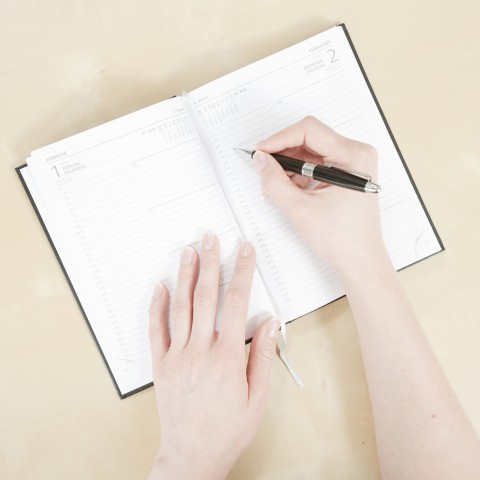








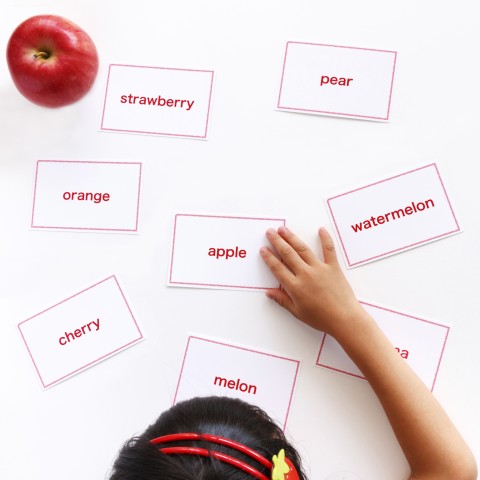








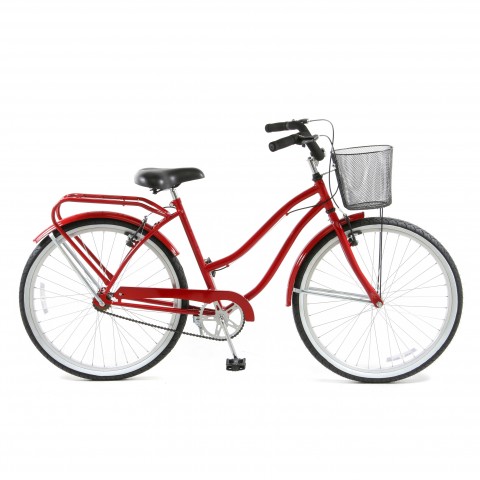


 Table of Contents
Table of Contents




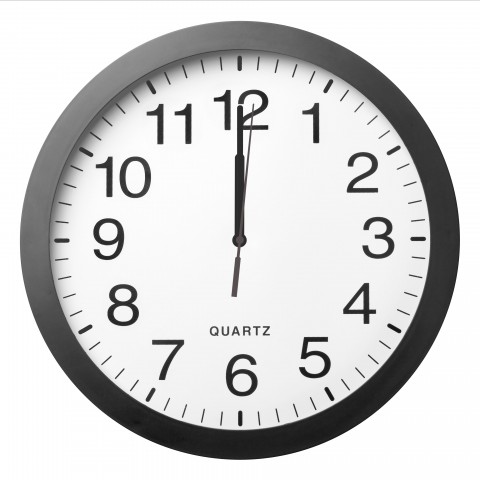


 Table of Contents
Table of Contents








